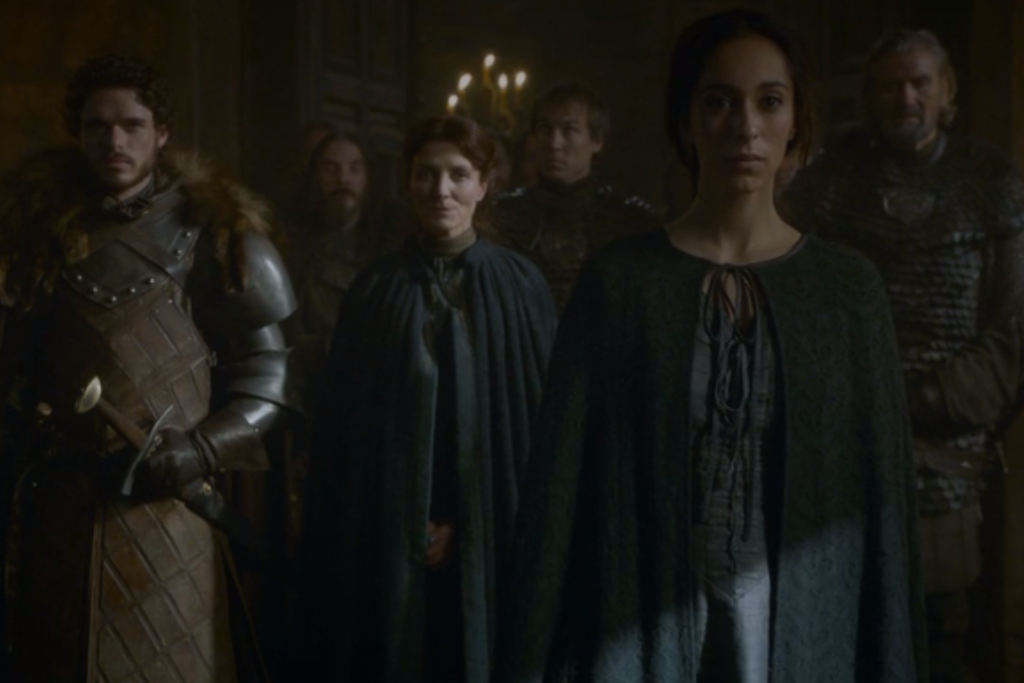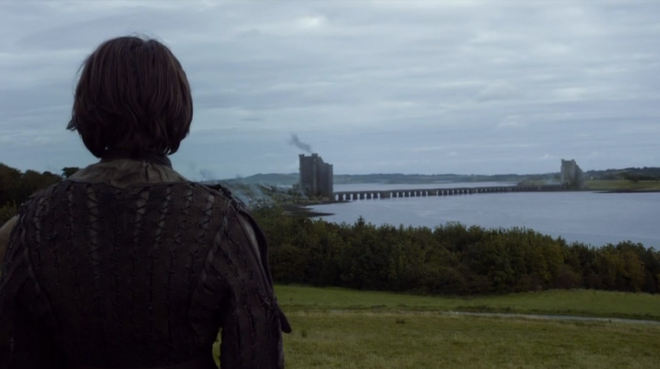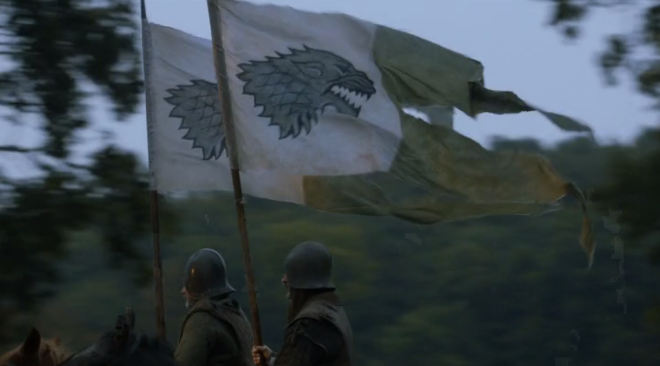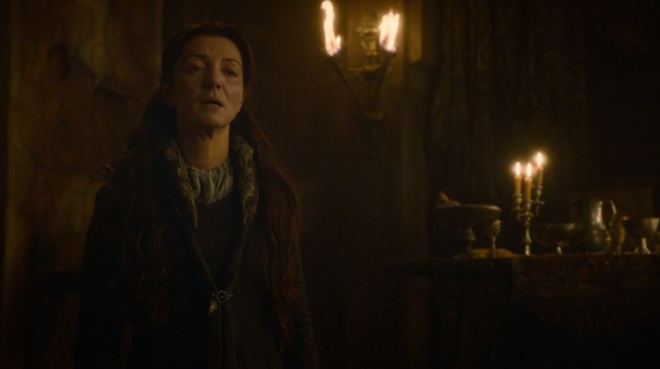Game Of Thrones Week 9: U Mad, Bro?
Half the world took to Twitter and Facebook to howl their (quite real) grief and shock. We don't expect our TV writers to devastate us like that. (Ahem: SPOILERS)

It’s different when it’s people you know, isn’t it?
Last episode, as Cersei sweetly gave Margaery the Cliffsnotes on the horrific massacre that inspired ‘The Rains of Castamere’, House Reyne was just a name, an extinct house, a cautionary tale consigned to history. It’s taken only a generation for the song to become an anthem for the Lannisters, a legend; in fact, the protagonist is still striding around, war-mongering and matchmaking and glowering Charles Dance-ly at everyone. It was hard not to think of that this week, as we see what it actually looks like firsthand when the Lannisters send their regards. The people in a song or a story or a news report are abstractions; only the people you know are real.
Clem Bastow mused on TheVine some weeks ago that GoT was maybe getting a bit too grim. I’d had my eye on covering similar territory in my column that week and had decided against it: grim didn’t even begin to cover where the show was going. Theon’s torture has dragged on an entire season, and the identity or goals of his torturer still hasn’t been made explicit (although sharp-eyed viewers have picked up on the heavy visual clues). Arya came agonisingly close to reuniting with her mother and brother, but only when it was already too late. Jon was denied the chance to choose between his mission with the Watch, Ygritte, and saving what is left of his family — and the choice he does get to make is heartbreaking enough. Talisa – like poor Ros – isn’t in the books, and her equivalent character is spared by the Freys, so her death by stabortion is an extra layer of grim fondant on the shitty, dry wedding fruitcake of raining death.

People feel these losses incredibly deeply. When famous people die, there is the now-customary outpouring of people saying “RIP” and “vale” and “your music/words/career/hair meant so much to me”, even though they may have never mentioned the person before; everyone wants to feel involved, to feel part of something, and they leap onto the deathwagon to share in the acknowledgement with others.
This was different.
In flagrant violation of social media spoiler etiquette and usually in all-caps, half the world took to Twitter and Facebook to howl their (quite real) grief and shock. They were done with Game of Thrones; they felt betrayed. Both the lovely wedding scene – the reveal of Roslin’s pretty face (Edmure’s clearly not worried about her having a Frey personality to go with it), the homely Frey daughters making eyes at the Blackfish, Robb and Talisa’s classically doomed conversation about the long, long, happy, problem-free life they and baby Ned are going to have – and the series up until now bore so few clues that it would end this way (depending on how cynical you are and how closely you associate brief happiness with impending doom).
Sure, Robb was clearly going to lose some battles, but fans were most likely girding their loins for him to die nobly on the battlefield, not catatonic with shock next to his dead pregnant wife at a wedding. Sure, Catelyn thought all but one of her children were dead, but with all of them actually alive and (relatively) well, the idea of them not being reunited seemed to go against the very laws of mathematics. So Martin, Benioff and Weiss were little better than sneering Walder Frey – they had drawn us into a sumptuous feast, fed us joy and love and scheming courtiers and honourable warriors, and then closed the doors behind us and killed everyone, even as we realised the trap we were in.

We don’t expect our TV writers to devastate us like that. We’ll watch as tragic characters spiral inevitably toward their doom, express indignant horror as one man is betrayed suddenly, and certainly we accept it more easily when an aspiring movie star asks to be written out. We’ll take the odd character death as a necessary sacrifice in the service of Great Storytelling, even as we hope for a deus ex machina or the kind of made-you-look fakeout we pretend to scorn but secretly love for its habit of delivering drama without the irrevocability of death. But when the decision has to be made, and a good, kind, flawed character steps off a chair into a noose in their office, or gets hit by a drunk driver at the corner of 18th and Potomac, we tell ourselves we can take it, because the writers will make it mean something to everyone left behind. It drives them on, makes them reach for the next challenge, the next plotline.
But we expect our writers to be better to us than God is. They have created this little petri-dish world, where they can move the people around for our entertainment, and doom or save them at will; we watch because we like to see our own world reflected back at us, in a neater package, with its morals and truths highlighted to make it feel more meaningful. So we see senseless, vicious death like the Red Wedding, in a show where most weeks all we have are threads that very occasional weave together, and it’s nothing more than a snipping of several threads braided into one.

It’s hard to see how we will be rewarded in truths and meanings for having sat through the brutal, explicit murders of three good, kind, flawed characters (not to mention dozens more we didn’t know so well, and a direwolf). We feel betrayed, that the world we spend an hour in each week by choice can be as savage and random (or so it feels) as the one we’re in all the rest of the time; that our attention and love is not enough to spare our favourite characters from the whims of the author; that the author, who has the power to choose happy endings, does not.
Those of us who feel able to go on will be rewarded, and handsomely. (So handsomely, I promise.) But yeah, this hurts. It hurt knowing it was coming; it must have felt brutal to those who were ambushed by it. And more than anything, it hurts knowing that Robb and Cat put themselves in that room months ago, through mistakes they made – that this is not senseless, but a sad story well told, by people who still hold in their hands many threads we still care about.
–
–
Caitlin Welsh is a freelance writer. She has written for The BRAG, Mess + Noise, FasterLouder, Cosmopolitan, TheVine, Beat, dB, X-Press, and Moshcam.
You can follow Game Of Thrones with her here.